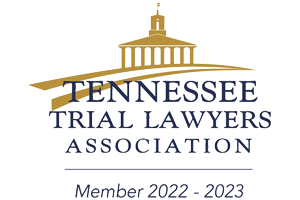- Contact Us Now: (615) 490-6020 Tap Here to Call Us
Tennessee’s New Covid-19 Law and Its Impact on Enforcement of Mandates

On November 12, 2021, Tennessee Governor Bill Lee signed a new law addressing several issues related to the response to the 2019 Novel Coronavirus, SARS-CoV-2, coronavirus disease (COVID-19), and COVID-19 vaccinations. The new law became effective immediately upon being signed by Gov. Lee on November 12, 2021. Among other things, the new law significantly curtails the government’s ability to impose mask mandates and prohibits the government and most private businesses from compelling individuals from providing proof of vaccination if the person objects to receiving a COVID-19 vaccine for any reason. This article discusses some of the important changes the new law brings to public policy surrounding the response to the COVID-19 pandemic throughout Tennessee.
At the outset, some of the most significant changes brought about by the new law concern restrictions on the ability of government and private businesses to require individuals to provide proof of having received a COVID-19 vaccination. Specifically, the new law states that “[a] private business, governmental entity, school, or local education agency shall not compel or otherwise take an adverse action against a person to compel the person to provide proof of vaccination if the person objects to receiving a COVID-19 vaccine for any reason.”¹ Importantly, the new law contains a broad definition of “private business,” and includes individuals, sole proprietorships, corporations, limited liability companies, partnerships, trusts, associations, and non-profit entities.² In addition, the new law contains a broad definition of “adverse action,” and includes discrimination “against a person by denying the person employment, privileges, credit, insurance, access, products, services, or other benefits.”³ As a result, under the new law, most private businesses and governmental entities in Tennessee are prohibited from requiring any individual from providing proof of vaccination in the event the person objects to receiving a COVID-19 vaccine for any reason, and this prohibition is applicable to employees, customers, or just about any individual who accesses products or services of a private business or covered governmental entity.
Nevertheless, the new law does contain several important exceptions to the general prohibition of requiring proof of having received a COVID-19 vaccination. The new law does not prevent the implementation of COVID-19 vaccine mandates for Medicare and Medicaid providers, or assisted-care living facilities, federal government contractors or subcontractors, schools, or employers that submit notice in writing to the comptroller of the treasury that compliance with the new law would result in a loss of federal funding.4 Moreover, the new law does not prohibit “a place of entertainment” in Tennessee from requiring proof of a negative COVID-19 test in order to gain admission, or to allow a person to voluntarily provide proof of vaccination or proof of COVID-19 antibodies in lieu of presenting a negative COVID-19 test in order to gain admission to a “place of entertainment.”5
The new law also addresses the implementation of mask mandates throughout much of Tennessee. Under the new law, with certain exceptions, governmental entities are no longer permitted to “require a person to wear a face covering as a condition to access the governmental entity’s premises or facilities, or to receive the benefits of the governmental entity’s products or services, unless severe conditions exist and the requirement is in effect for no more than fourteen (14) days.”6 The new law further defines “severe conditions” to mean that: (1) the Governor of Tennessee has declared a state of emergency for COVID-19; and (2) a county has an average rolling fourteen-day COVID-19 infection rate of at least 1,000 new known cases of COVID-19 for every 100,000 residents of the county based on the most recent data published by the department of health.7 When “severe conditions” do not exist, many governmental entities are also prohibited from requiring employees from wearing a face covering as a term or condition of employment, or from taking an adverse action against an employee for failing to wear a face covering.8
In order for a school to implement a mask mandate under the new law, “severe conditions” must exist, the school’s governing body must adopt a policy requiring all persons on school property to wear a face covering, and the school must provide face coverings meeting the U.S. National Institute for Occupational Safety and Health N95 classification of air filtration for persons 12 years of age and older.9 Even if these requirements are met, the new law does not permit schools to require a person to wear a face covering if the person provides documentation from the person’s healthcare provider that wearing a face covering is contraindicated for the person, or if the person objects to wearing a face covering because of the person’s sincerely held religious belief.10 As with the implementation of COVID-19 vaccine mandates under the new law, there are several exceptions to the prohibitions on the implementation of mask mandates set forth in this article, including for Medicare or Medicaid certified providers, entities operating on property owned, managed, or secured by the federal government, and healthcare providers.11 Also, and very importantly, the new law does not prohibit private employers or businesses from requiring face coverings for employees, customers, or any other members of the public receiving services.
Beyond significantly curtailing the ability of many government entities and private businesses from implementing COVID-19 vaccine and other similar mandates, the new law makes several other noteworthy changes to Tennessee law. The new law permits certain individuals to receive unemployment retroactively if they left employment because of a failure or refusal to receive a COVID-19 vaccine when it was previously required by their employer.12 Furthermore, except in certain cases of minors subjected to abuse or dependent and neglected children, the law restricts the ability of healthcare providers to administer a COVID-19 vaccine to a minor without first obtaining written consent from the minor patient’s parent or legal guardian.13 Moreover, the law limits civil liability for deaths “arising from COVID-19, unless the claimant proves by clear and convincing evidence that the person proximately caused the loss, damage, injury, or death by an act or omission constituting gross negligence or willful misconduct.”14
Importantly, the new law also contains an enforcement mechanism in the event of violations. Specifically, the new law creates a private right of action for injunctive relief, compensatory damages, and reasonable attorneys’ fees for any aggrieved person against an alleged violator.15 By its own terms, the new law terminates on July 1, 2023.16
The precise contours or Tennessee’s new COVID-19 law have yet to be fully litigated in the courts, and there are still several areas of uncertainty regarding the new law’s enforceability and constitutionality. Nevertheless, there can be little doubt that Tennessee’s new COVID-19 law has already had a profound impact on Tennessee’s response to the COVID-19 pandemic, and the new law’s effects will likely continue to be felt by private businesses, employers, employees, government entities, and many more until at least July 1, 2023.
If you think Tennessee’s new COVID-19 law may impact you or a loved one, you should seek the legal advice of a knowledgeable attorney immediately. During these uncertain times, it is extremely important to seek the assistance of a legal professional to learn your legal rights and obligations as Tennessee continues to navigate through the COVID-19 pandemic. Contact a Nashville attorney with Cole Law Group today at 615-490-6020 to schedule a consultation and learn about how Tennessee’s new COVID-19 law may impact you.
ABOUT THE AUTHOR: Andy Goldstein
Andy Goldstein is an Associate Attorney at Cole Law Group. He is a graduate of Belmont University College of Law and is admitted to practice in Tennessee state courts, the United States Court of Appeals for the Sixth Circuit, and the Immigration Courts of the Executive Office for Immigration Review (EOIR). Andy focuses his practice in the areas of Family Law, Defamation & Privacy, Probate, and Complex Civil Litigation. Cole Law Group clients benefit from Andy’s passion for the law and dedication to serving them well.
Disclaimer: While every effort has been made to ensure the accuracy of this publication, it is not intended to provide legal advice as individual situations will differ and should be discussed with an experienced lawyer. For specific technical or legal advice on the information provided and related topics, please contact the author.
_________________________________
1 Tenn. Code Ann. § 14-2-102(a).
2 Tenn. Code Ann. § 14-1-101(15). Notably, the new law does not define a “private business” to include schools, Medicare or Medicaid certified providers, certain healthcare providers enrolled in Medicare or Medicaid, or certain assisted-care living facilities.
3 Tenn. Code Ann. § 14-1-101(1)(A). Moreover, the definition of “adverse action” in the new law also means to “discharge, threaten, or otherwise discriminate against an employee in any manner that affects the employee’s employment, including compensation, terms, conditions, locations, rights, immunities, promotions, or privileges.”
4 Tenn. Code Ann. § 14-6-102.
5 Tenn. Code Ann. § 14-2-102(b).
6 Tenn. Code Ann. § 14-2-103(a)(1).
7 Tenn. Code Ann. § 14-1-101(20).
8 Tenn. Code Ann. § 14-2-103(a)(2).
9 Tenn. Code Ann. § 14-2-104.
10 Tenn. Code Ann. § 14-2-104(c).
11 Tenn. Code Ann. § 14-1-101(8).
12 Tenn. Code Ann. § 14-3-101.
13 Tenn. Code Ann. § 14-4-103(a)-(b).
14 Tenn. Code Ann. § 14-5-101.
15 Tenn. Code Ann. § 14-6-103.
16 Tenn. Code Ann. § 14-6-104.















